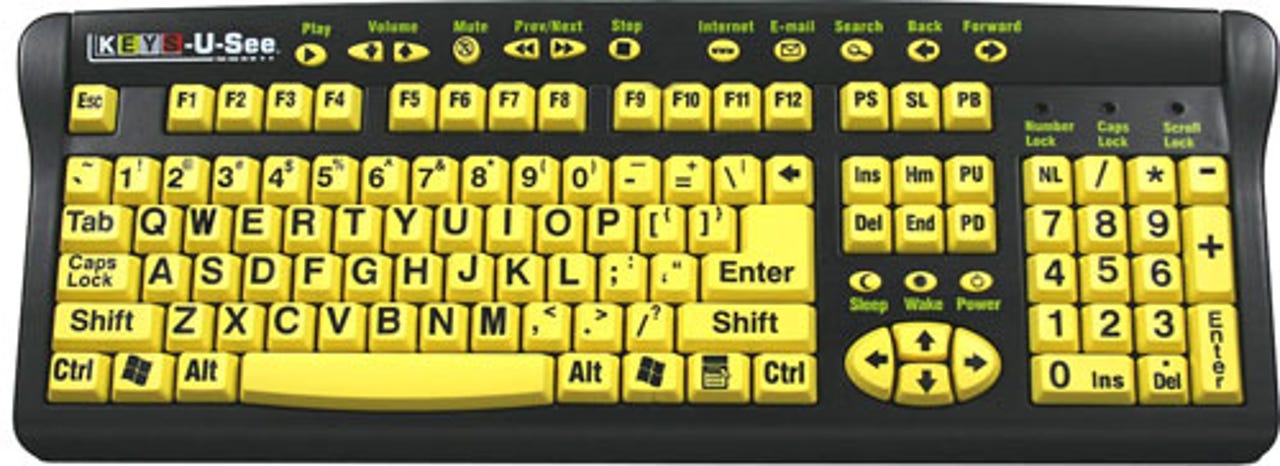Photos: Disability technology goes mainstream


Companies such as The Key Connection are making special gadgets for people with vision problems. This Keys-U-See large-print keyboard sells for $34.95.
Some assistive technologies help people with musculoskeletal problems. The DataHand is a programmable computer keyboard and mouse with a QWERTY layout and keys that adjust both vertically and horizontally. The device retails for $497.
The orbiTouch keyless keyboard, priced at $399, allows users to type characters by sliding the domes around to create letters and numbers.
This headband and armband lets a computer user control the computer cursor with motion and eye blinks to activate button clicks. A person with physical limitations could "point and click" without lifting a finger from the computer keyboard. This device, Stanford's BioControl Systems, are not publicly available.
Jerry Swerdlick is an entrepreneur who helps companies assist employees with visual, physical, hearing or learning disabilities. Swerdlick, who is legally blind, inked a deal with Dell on Sept. 29, 2005, to provide assistive technology for disabled veterans through the U.S. Department of Veterans Affairs.
A customized handheld device with a GPS module aims to help a person with cognitive disabilities catch a bus. Using prototype software from AgentSheets, it sends a prompt to get ready when the bus is approaching (left) and another when the bus is at the stop (right).